John Vanderslice on Tiny Telephone: Giving Independent Bands Access to the Craft of Analogue Recording
“This is what everyone gets wrong,” John Vanderslice explains as he prepares a pot of organic third-wave coffee. “They don’t heat up the cup, and that’s violence on fucking coffee, man.” He proceeds to show us how to warm the mugs under the sink, grind the locally roasted beans, rinse any dust out of the filter, and measure the right amount of water to fill the stainless steel pour-over coffee maker. “But if you want to see the true baller move,” he continues, motioning to the fridge, “it’s this fucking raw milk. It’s from a small farm and we have a deal with them. They only have like three hundred cows—they visited the studio once.”
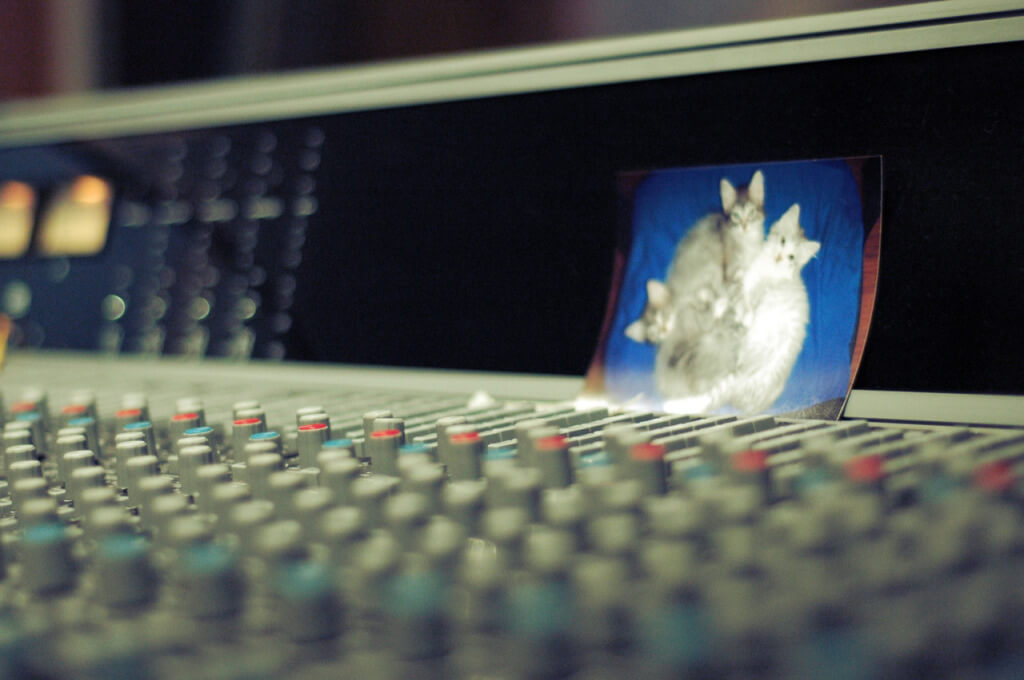
A band has just arrived for their first session at Vanderslice’s Tiny Telephone Studios and he’s quick to make them feel at home. Vanderslice—rocking a handy REI headlamp atop a Cobain-esque bleached blonde haircut—is an energetic and supremely engaging dude. He understands how big a deal it is for the band to be booking studio time and he’s genuinely excited to make sure that they have the best recording experience possible. And as anyone who’s spent time in the studio knows, a good pot of coffee is essential to a successful recording session.
This commitment to quality is not limited to Tiny Telephone’s kitchen. The studio boasts a world-class collection of vintage analog gear—including two Neve mixing consoles and Studer tape machines, numerous high-end microphones, and a bevy of analog synthesizers, compressors, and effects. For this reason, it has become a destination for bands looking to make great sounding records. Death Cab For Cutie, Spoon, Sleater-Kinney, and The Mountain Goats have all recorded excellent albums here, but even with the notable client list, the studio retains a distinctly DIY vibe.
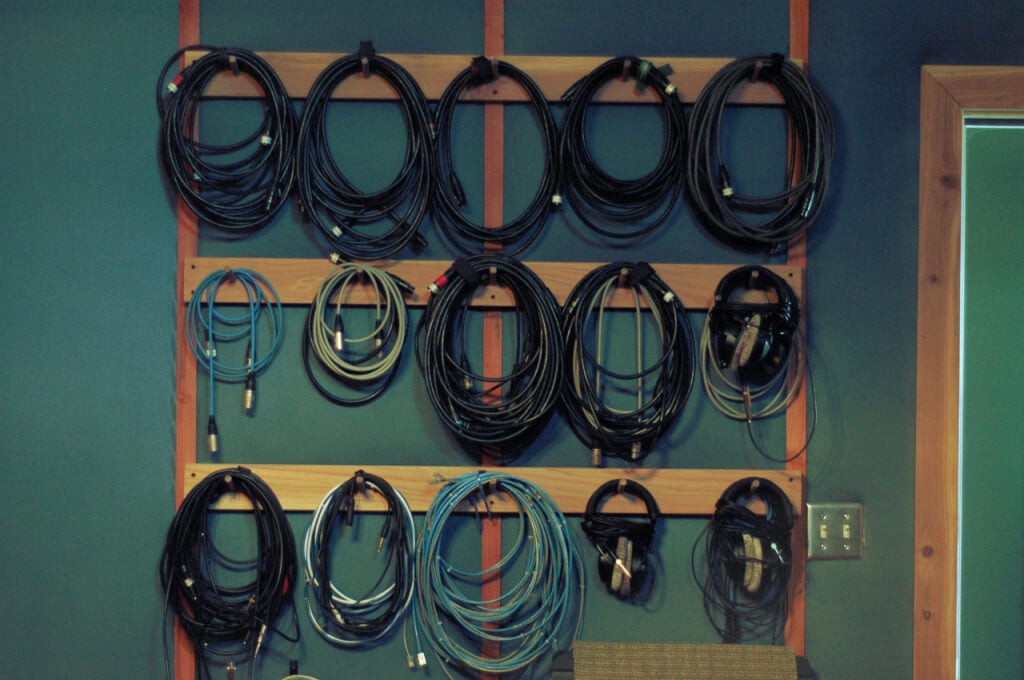
Vanderslice began renting the space in 1997 as a co-op rehearsal area. Located in a (then) down-and-out neighborhood in San Francisco’s Mission District, Tiny Telephone started small, just one room in a warehouse complex neighboring an auto shop. But as his collection of vintage audio gear grew, the space transitioned organically into a full-blown, fully-operational operating studio. Since then, Vanderslice has added a B Room within the same complex and plans to open a new studio across the bay in Oakland later this year.
Tiny Telephone’s proprietor makes very clear that the studio is a business first and not any sort of vanity project. Each of its rooms is open to the public and booked nearly every day of the year, giving independent musicians affordable access to the kind of hi-fi analog recording equipment typically found only in private boutique studios.
“A lot of people fetishize this old gear, I don’t really do that. I’m much more clinical about it,” Vanderslice says, explaining the advantages of analog recording, “It just sounds better. The idea is when you have good gear, you just get out of the way and it’s pretty amazing.” In describing the studio’s vintage Neve mixing consoles, he adds, “Some of it is just math. Those consoles have point-to-point wiring, and they’re all discreet so there’s no IC chip, and each individual EQ circuit has its own amplifier. So you’re asking a computer to do all that? I mean, come on! It’s like walking up to a vending machine and expecting to get Chez Panisse.”
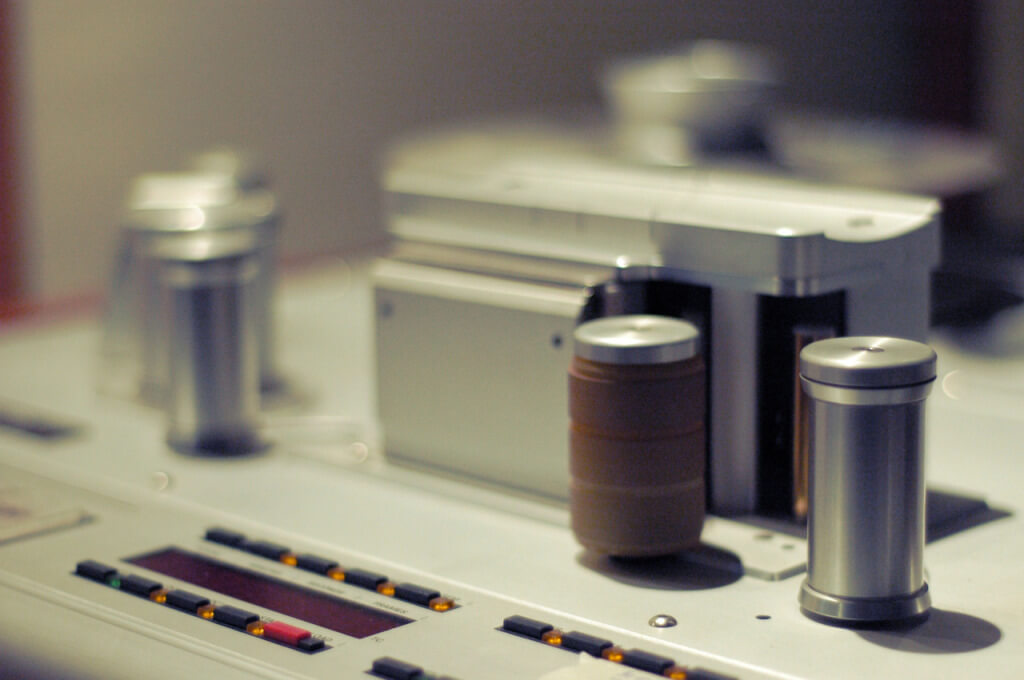
If you doubt the efficacy of this analog recording equipment, then check out any one of the ten solo albums Vanderslice has recorded at Tiny Telephone since releasing his debut in 2000. His music draws inspiration from the kaleidoscope pop rock of groups like The Kinks, David Bowie, and early Pink Floyd, and each of his albums is layered with the same sonic scope and meticulous attention to detail as those artists’ classic records from the ’60s and ’70s. (He even recorded his own interpretation of Bowie’s glam-opus Diamond Dogs – listen below.)
When pressed as to whether anyone today even cares about the fidelity of the music they listen to, Vanderslice fires back, “Why not spread that line of thinking to every square inch of your life? Why do you even get out of fucking bed? Why even open your mouth because everyone is just going to misunderstand what you say? How about this, you could say no one’s going to even hear your record anyway.” Instead, he argues, “Art is permanent. You have to have a responsible relationship with the craft or it will just rule you.”
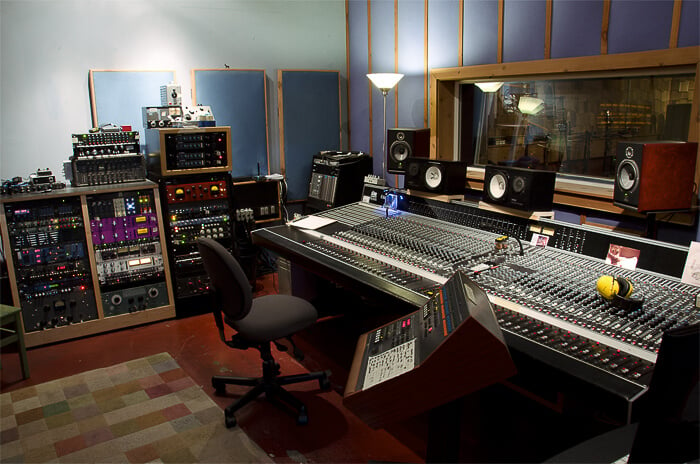
Tiny Telephone isn’t just a place to record music; it’s a space to make great art, and the entire goal is to guide working musicians in their pursuit of creating something of lasting value. “It’s sacred and very meaningful to be able to price out a working class budget for a working class band…We budget out for records that sell a thousand copies— records that makes sense for bands trying to have a sustainable career in the arts. We fucking buy the tape for them! I’m such a loudmouth with this shit that I back it up by buying thirty, forty thousand dollars worth of tape. I’m like,‘Fuck you world, and fuck you [big corporations] and all you lazy motherfuckers. I’m going to show you how we’re going to do it.’”
In addition to the free analog tape and vintage gear, the affordably priced engineers, and even the official house orchestra (SF’s Magik*Magik Orchestra), what sets Tiny Telephone apart is Vanderslice’s commitment to fostering an environment where every band can do truly exceptional work.
There’s a communal vibe to the place, and a sense that everyone involved is working in service of a kind of greater artistic good. At Tiny Telephone, recording a three song demo for a local garage rock outfit is every bit as righteous an endeavor as recording Ben Gibbard.
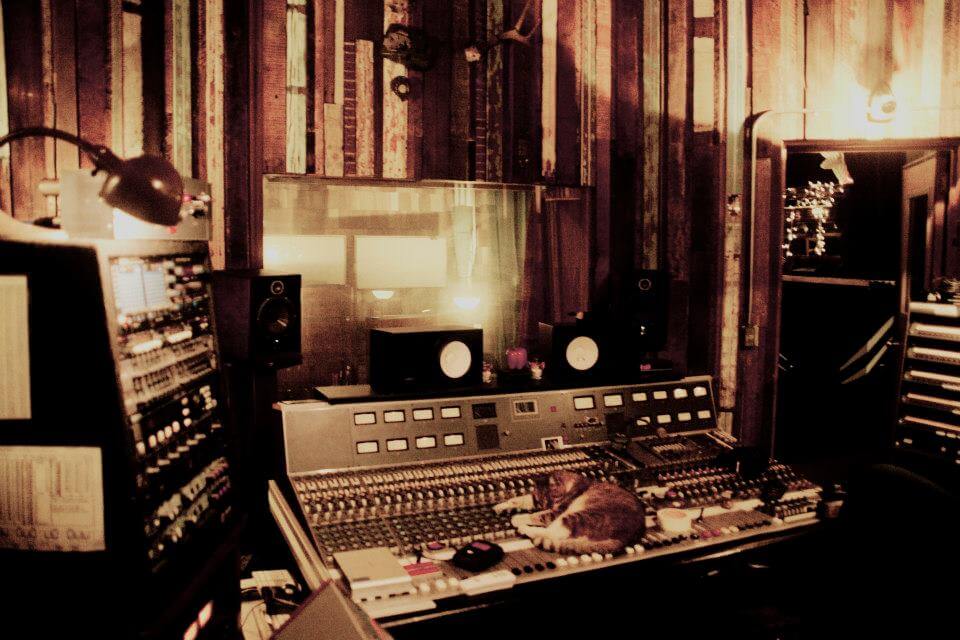
“If you’re going to be in the art game, the whole goal is absolute genius. What’s the point otherwise?” Vanderslice asks in utter sincerity. And with what may as well be the Tiny Telephone mission statement, he declares, “Let’s have a mature, fucking fierce relationship to the craft—be a fucking warrior.”
For more info, visit Tiny Telephone online.
